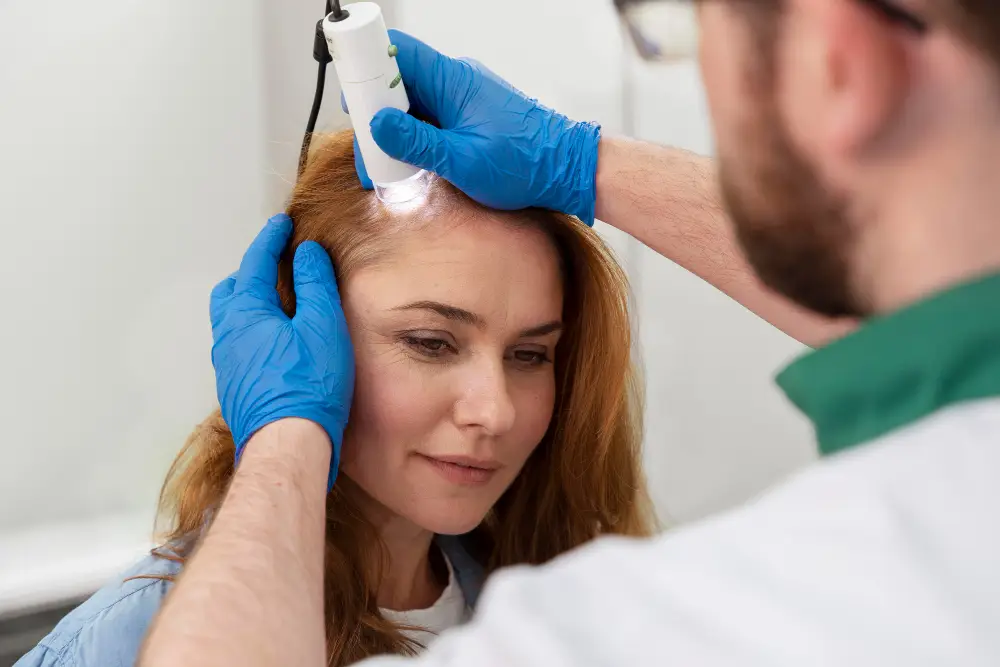
Navigating Multiple System Atrophy (MSA) Treatment: An In-Depth Guide to Stem Cell Considerations and Pathways in Pereira, Colombia
Key Takeaways for Your MSA Journey:
- Multiple System Atrophy (MSA) is a progressive condition requiring comprehensive and informed management.
- Stem cell research for neural repair and autonomic nervous system support is an evolving field; understanding its current scientific status is crucial.
- Pereira, Colombia, offers a unique blend of medical infrastructure, a supportive patient environment, and ethical oversight for those exploring advanced care pathways.
- The Regencord team provides essential logistical support and educational resources to navigate international medical considerations for MSA treatment.
- Your journey begins with clarity: a confidential case review can provide personalized insights without obligation.
Introduction: Seeking Clarity Amidst Uncertainty for MSA
A diagnosis of Multiple System Atrophy (MSA) often ushers in a period of profound uncertainty. This progressive neurological condition, characterized by its impact on the autonomic nervous system and motor functions, presents significant challenges for patients and their families. Many find themselves searching for advanced pathways that extend beyond conventional symptomatic management, often looking towards the evolving landscape of cellular and regenerative science, including potential applications of stem cell considerations for neural repair.
The journey to explore such pathways, particularly internationally, can be overwhelming. Questions about scientific validity, safety, logistical complexities, and ethical considerations are paramount. This guide is crafted by the Regencord team in Pereira, Colombia, specifically to address these concerns. Our objective is to provide a meticulously researched, ethical, and patient-centric resource that educates and empowers you. We aim to distill complex information about MSA treatment, particularly regarding stem cell considerations for the autonomic nervous system and potential neural repair, into clear, actionable insights.
While we refrain from asserting unverified clinical superiority or guaranteeing outcomes, we are dedicated to presenting a transparent view of the advantages that Pereira, Colombia, offers as a destination for exploring advanced care pathways. By focusing on education, verifiable facts, and the patient journey, we hope to be the trusted resource that guides you from uncertainty to decisive, informed action regarding MSA treatment and the potential role of stem cell research.
The Stakes: Understanding Multiple System Atrophy and Its Critical Implications

Multiple System Atrophy (MSA) is a rare and devastating neurodegenerative disorder that impacts multiple systems within the body. It is characterized by the progressive degeneration of nerve cells in several parts of the brain, including the basal ganglia, brainstem, and cerebellum. This widespread neural damage leads to a complex array of symptoms that steadily worsen over time, profoundly affecting a patient’s quality of life and independence.
The Impact on the Autonomic Nervous System
One of the hallmark features of MSA is its severe effect on the autonomic nervous system. This system, which operates largely outside of conscious control, regulates essential bodily functions. For individuals with MSA, this can manifest as:
- Orthostatic Hypotension: A dramatic drop in blood pressure upon standing, leading to dizziness, fainting, and an increased risk of falls. This symptom can be debilitating and significantly restrict mobility.
- Urinary and Bowel Dysfunction: Difficulty with bladder control, urinary incontinence, and constipation are common and distressing.
- Erectile Dysfunction: A frequent early symptom in men, highlighting the broad impact on autonomic functions.
- Sweating Abnormalities: Either reduced sweating (anhidrosis) or excessive sweating can occur, affecting body temperature regulation.
- Sleep Disorders: Including REM sleep behavior disorder, where individuals act out their dreams.
As highlighted by the U.S. National Institutes of Health (NIH), the impairment of the autonomic nervous system is central to the progressive disability seen in MSA, making day-to-day life increasingly challenging. (NIH Source)
Motor Impairment and Coordination Challenges
In addition to autonomic dysfunction, MSA also leads to significant motor symptoms, often categorized into two main types:
- Parkinsonism (MSA-P): Symptoms resembling Parkinson’s disease, such as slowness of movement (bradykinesia), rigidity, tremors (less common than in Parkinson’s), and postural instability.
- Cerebellar Dysfunction (MSA-C): Manifesting as ataxia, which involves problems with coordination, balance, speech (dysarthria), and eye movements.
These motor symptoms contribute to gait instability, increased fall risk, and difficulties with fine motor tasks, further eroding independence. The combination of autonomic and motor decline paints a picture of substantial progressive disability.
The Search for Neural Repair and Disease-Modifying Therapy
Currently, there are no pathways recognized as a definitive disease-modifying therapy for MSA that can halt or reverse its progression. Conventional approaches focus primarily on managing symptoms and improving quality of life. This reality drives many patients and their families to seek out advanced research and emerging fields, such as those exploring neural repair strategies. The hope is that by understanding and potentially influencing the underlying degenerative processes, a pathway to slow, stabilize, or even restore lost function might be found. This challenging landscape underscores the importance of a well-informed and ethically guided exploration of all potential avenues for support and advanced care.
The Conventional Approach to Managing MSA and the Search for Deeper Support

In the absence of a therapy that definitively halts or reverses the progression of Multiple System Atrophy, the conventional medical approach primarily centers on symptomatic management. This means addressing each symptom as it arises to improve the patient’s comfort and functioning for as long as possible. While these interventions are crucial for daily living, they often leave patients and their families searching for more comprehensive or foundational approaches.
Current Symptomatic Management Strategies
Medical teams globally utilize a range of strategies to mitigate MSA’s effects:
- Medications for Orthostatic Hypotension: Drugs like fludrocortisone or midodrine are often prescribed to help raise blood pressure, though their efficacy can vary and side effects must be managed.
- Physical and Occupational Therapy: These therapies aim to maintain mobility, strength, and balance, and to provide adaptive strategies for daily tasks. Speech therapy can address difficulties with swallowing (dysphagia) and speaking (dysarthria).
- Bladder and Bowel Management: Medications or interventions to help manage urinary incontinence, urgency, and constipation.
- Sleep Aids: To address issues like REM sleep behavior disorder.
- Nutritional Support: Ensuring adequate hydration and nutrition, sometimes with the assistance of feeding tubes in advanced stages.
These approaches, while important, are primarily reactive. They aim to alleviate the burden of symptoms rather than targeting the underlying neurodegeneration that defines MSA. Patients often report a sense of continuous decline despite these efforts, fueling a natural desire to explore broader possibilities.
The Gaps and the Quest for Advanced Pathways
The inherent limitation of symptomatic treatment is that it does not address the progressive loss of nerve cells contributing to the decline of the autonomic nervous system and motor function. This gap often leads individuals and their loved ones to investigate emerging fields, particularly those focused on neural repair and potential disease-modifying therapy. The concept of using biological approaches, such as stem cell considerations, to potentially support, protect, or even regenerate damaged tissues, represents a frontier that many find compelling.
However, navigating this frontier requires immense diligence. Information can be fragmented, and distinguishing between promising research and unproven claims is challenging. This is where an emphasis on education, transparency, and a deeply patient-centric approach becomes invaluable. The search for more profound support and understanding underscores the need for resources that can guide patients through complex medical landscapes, empowering them to make informed decisions about all available pathways.
The Pereira, Colombia Advantage: A Holistic Approach to Advanced Care Pathways

For those navigating the complexities of Multiple System Atrophy and exploring advanced care pathways, the choice of location for medical considerations extends far beyond clinical offerings alone. Pereira, Colombia, emerges as a compelling destination, distinguished not only by its developing medical infrastructure but also by a unique confluence of factors that enhance the overall patient experience. The Regencord team in Pereira, Colombia, understands that care for conditions like MSA demands more than just treatment; it requires a supportive environment and a seamless journey.
Robust Infrastructure and Regulatory Oversight
Colombia has made significant advancements in its healthcare sector, with a growing reputation for high-quality medical services, particularly in cities like Pereira. The medical facilities here are increasingly equipped with advanced technology and staffed by highly trained medical professionals, many of whom have international experience. This commitment to quality is underpinned by a rigorous regulatory framework.
The Instituto Nacional de Vigilancia de Medicamentos y Alimentos (INVIMA) and the Ministerio de Salud y Protección Social de Colombia are key governing entities that oversee the country’s healthcare landscape. INVIMA, in particular, is responsible for the regulation and supervision of medicines, biological products, medical devices, and health services. This oversight ensures that medical institutions and treatment protocols adhere to national standards, providing a level of assurance regarding patient safety and the ethical conduct of medical procedures. When exploring potential options for MSA treatment, including considerations for stem cell pathways, understanding this robust regulatory environment is fundamental.
The Patient-Centric Journey: Navigating Care with Support
Our experience highlights that facilitating international medical care for conditions like MSA requires more than just clinical excellence; it demands a deeply integrated patient support system. The team at Regencord in Pereira, Colombia, has cultivated an approach that prioritizes the patient journey from the very first inquiry. This commitment transforms what might otherwise be a daunting prospect into a manageable and empowering experience.
Consider the process: from initial contact, a dedicated patient advocate works to understand your unique situation and provide tailored information. This support extends to meticulous logistical planning, including assistance with travel arrangements, comfortable and accessible accommodation, and local navigation. The goal is to minimize stress and uncertainty, allowing patients and their families to focus their energy on health and well-being rather than administrative burdens. This comprehensive coordination ensures continuity of care and peace of mind, which is invaluable when dealing with a complex condition that impacts the autonomic nervous system and motor functions.
A Naturally Therapeutic Environment
Beyond the clinical advancements, Pereira offers a unique therapeutic milieu that can significantly contribute to a patient’s overall well-being. Nestled in Colombia’s picturesque coffee region, Pereira boasts a mild climate, lush landscapes, and a tranquil atmosphere. The serene natural environment, combined with a supportive community infrastructure, often plays a subtle yet profound role in patient recovery and mental state. Our observations indicate that patients often report an enhanced sense of peace and focus when their physical treatment is complemented by a restorative environment.
This holistic approach to the patient journey—where advanced medical infrastructure meets compassionate support and a calming environment—provides a distinct advantage for those seeking advanced care pathways for Multiple System Atrophy. It’s about creating an ecosystem where every element works in concert to support the patient, fostering a sense of hope and clarity in a challenging time.
Introducing The Pereira Pathways Clarity Compass

Navigating the complex landscape of Multiple System Atrophy (MSA) and its potential advanced pathways, including stem cell considerations for neural repair, requires a clear roadmap. To empower you with structured information and confidence, the Regencord team has developed **The Pereira Pathways Clarity Compass**.
This branded patient resource tool is designed to be your personal guide, helping you systematically evaluate potential care options and understand the journey ahead. The Clarity Compass helps you organize your thoughts, questions, and research, ensuring you approach decisions about MSA treatment with a comprehensive perspective. It addresses key stages of the patient journey:
- Information Gathering & Validation: A checklist for discerning reputable sources and understanding the current scientific consensus on stem cell research for the autonomic nervous system.
- Personalized Needs Assessment: Prompts to help you articulate your specific symptoms, medical history, and personal priorities, which are crucial for a confidential case review.
- Logistical Planning Checklist: A step-by-step guide for considering travel, accommodation, local support, and practical arrangements if you explore international pathways in Pereira, Colombia.
- Ethical & Regulatory Considerations: Insights into what to look for regarding patient safety, ethical oversight, and INVIMA regulations within advanced care settings.
- Preparation for Consultation: Guidance on formulating key questions to ask during a confidential case review, ensuring you receive the most relevant and comprehensive information.
The Pereira Pathways Clarity Compass is more than just a document; it’s a commitment to transparency and patient empowerment. It transforms the perceived complexity of exploring advanced MSA care into a manageable, supported pathway, providing you with the tools to navigate your journey with greater confidence.
Our Regenerative Philosophy: Empowering Informed Decisions for MSA

At the heart of the Regencord team’s approach in Pereira, Colombia, is a profound belief in empowering patients with knowledge and supporting them through complex medical decisions, particularly concerning conditions like Multiple System Atrophy. Our philosophy is rooted in education, transparency, and ethical consideration, rather than unverified claims or promissory language.
Education as the Foundation of Empowerment
We recognize that understanding the nuances of conditions such as MSA, and the evolving fields of neural repair and stem cell research, can be incredibly challenging. Our commitment is to bridge this information gap. We meticulously review current scientific literature from authoritative references, including the U.S. National Institutes of Health (NIH) and PubMed-indexed peer-reviewed journals, to provide you with the most up-to-date and scientifically grounded insights. This educational focus ensures that any exploration of potential pathways, particularly those involving advanced concepts like disease-modifying therapy for the autonomic nervous system, is based on a realistic understanding of current research and its limitations.
We are here to help you understand what is currently known, what remains investigational, and what questions to ask. This means discussing the promise of regenerative approaches within the context of ongoing research, never offering guarantees or implying immediate solutions. Our role is to inform, allowing you to weigh options with clarity.
A Patient-Centric, Ethical Framework
Our approach extends beyond simply presenting facts; it encompasses a deep empathy for the patient journey. We understand the emotional and practical burdens that accompany a diagnosis of MSA. Therefore, every interaction is designed to be supportive, respectful, and free from pressure. We adhere to the highest ethical standards, prioritizing patient autonomy and well-being above all else.
This includes:
- Transparent Communication: Clearly articulating the nature of all services and information provided, distinguishing between educational content and direct medical advice.
- No Unverified Claims: Strictly avoiding any assertion of clinical superiority, efficacy, or guaranteed outcomes for any treatment, especially regarding stem cell considerations. All discussions are grounded in verifiable research and regulatory compliance.
- Holistic Support: Recognizing that the patient’s well-being is multifaceted, our support encompasses not only information about potential medical pathways but also comprehensive logistical and emotional assistance throughout the international care journey.
- Advocacy and Guidance: Acting as your advocate, helping you navigate the healthcare landscape in Pereira, Colombia, and connecting you with the appropriate resources for a confidential assessment.
Ultimately, our philosophy is to be a trusted guide on your journey. We believe that by providing clear, ethical, and well-supported information about the potential pathways for MSA treatment, you are best equipped to make the most informed decisions for your health and future.
Overcoming Common Hesitations: Why Seeking Clarity is a Strategic Advantage
The decision to explore advanced pathways for Multiple System Atrophy, particularly those involving stem cell considerations and international travel, often comes with a significant amount of hesitation and apprehension. It’s natural to feel wary, given the complexity of the condition and the evolving nature of advanced therapies. The team at Regencord in Pereira, Colombia, understands these concerns and addresses them head-on, transforming perceived barriers into opportunities for clarity and empowered decision-making.
Addressing Safety and Research Validity
Barrier: “Stem cell treatments for MSA feel like a desperate last resort, potentially unsafe or unproven, and I’m worried about false hope.”
Strategic Advantage: We understand the skepticism. It’s vital to differentiate between unverified claims and research-backed approaches. Our focus is on educating you about the current scientific understanding of neural repair for MSA, drawing from rigorous sources like the U.S. National Institutes of Health (NIH) and PubMed-indexed journals. We guide you toward understanding treatments that operate within established regulatory frameworks, emphasizing patient safety and ethical oversight as paramount considerations, rather than promising outcomes. Our role is to provide clarity, not to promote unproven interventions. By engaging with us, you gain access to vetted information, helping you discern legitimate research from speculative claims, which is a strategic advantage in a complex field.
Navigating the Logistics of International Care
Barrier: “The thought of traveling internationally for medical care, especially with MSA symptoms impacting my autonomic nervous system, seems incredibly difficult and risky.”
Strategic Advantage: Navigating international travel with a chronic condition can indeed be daunting. Our approach focuses on meticulous pre-planning and comprehensive, personalized support for every step of your journey. From accessible transport arrangements and comfortable accommodations to dedicated patient advocacy and on-site assistance, we transform the logistical challenges into a smooth, supported experience, allowing you to focus on your health with peace of mind. We address the specifics of your condition, such as managing autonomic nervous system challenges during travel, to ensure a comfortable and safe passage. This bespoke support system eliminates much of the travel anxiety, turning a potential hurdle into a well-managed pathway.
Ensuring Quality and Regulatory Standards
Barrier: “How can I be sure the care quality in Colombia for advanced conditions like MSA is comparable to what I’d find in the USA, Canada, or the UK, and that it’s regulated properly?”
Strategic Advantage: Colombia has a robust and evolving healthcare system with specific regulatory bodies like INVIMA (Instituto Nacional de Vigilancia de Medicamentos y Alimentos) that oversee medical treatments and facilities, ensuring adherence to national and often international standards. We emphasize transparency regarding accreditation, professional qualifications, and adherence to patient safety protocols. Our aim is to provide verifiable information about the high-quality infrastructure and highly trained medical professionals, ensuring you understand the rigorous oversight that governs the provision of care in Pereira, fostering confidence in the system. By offering this transparent view, you are empowered to make a comparison based on verifiable facts, not assumptions, providing a crucial strategic advantage in assessing care quality.
Managing Information Overwhelm and Avoiding Pressure
Barrier: “I’m overwhelmed by all the information and the complexity of my condition. How do I even start to figure out if this is right for me, without being pressured?”
Strategic Advantage: Your journey begins with clarity, not pressure. Our ‘Confidential Case Review’ is a no-obligation opportunity to discuss your unique situation with a patient advocate who understands the nuances of multiple system atrophy. This allows us to provide tailored information, address your specific questions, and help you understand potential pathways without any commitment, empowering you to make an informed decision at your own pace. This is an educational conversation, purely for your benefit, designed to cut through the noise and provide focused, relevant information, which is arguably the most significant strategic advantage you can gain in your search for clarity.
Glossary of Key Terms for MSA and Stem Cell Considerations
- Multiple System Atrophy (MSA)
- A rare, progressive neurodegenerative disorder affecting various parts of the brain (basal ganglia, brainstem, cerebellum), leading to severe impairment of the autonomic nervous system and motor control.
- Autonomic Nervous System
- The part of the nervous system responsible for controlling involuntary bodily functions such as heart rate, blood pressure, digestion, breathing, and body temperature. Its dysfunction is a hallmark of MSA.
- Neural Repair
- A broad term referring to strategies and processes aimed at restoring damaged nerve cells, neural pathways, or lost neurological function. This can involve regeneration, neuroprotection, or neuroplasticity. For MSA, it refers to efforts to address the degeneration of brain cells.
- Disease-Modifying Therapy
- A type of medical intervention that aims to alter the underlying biological processes of a disease, rather than just treating its symptoms. For MSA, this would mean a therapy that could slow, halt, or reverse the neurodegeneration.
- Stem Cell Considerations
- Refers to the exploration and research into the potential use of various types of stem cells (e.g., mesenchymal stem cells, neural stem cells) for their capacity to promote repair, reduce inflammation, or replace damaged cells in conditions like MSA. It’s an area of active research.
- Orthostatic Hypotension
- A form of low blood pressure that happens when you stand up from sitting or lying down, causing dizziness, lightheadedness, or fainting. It’s a common and debilitating symptom of MSA due to autonomic dysfunction.
- INVIMA
- Instituto Nacional de Vigilancia de Medicamentos y Alimentos (National Food and Drug Surveillance Institute of Colombia). The primary regulatory body in Colombia responsible for overseeing health products, medical devices, and health services, ensuring safety and quality.
- Neurodegeneration
- The progressive loss of structure or function of neurons, including death of neurons. This process is central to neurodegenerative diseases like MSA, Alzheimer’s, and Parkinson’s.
- Patient Journey
- The entire experience of a person seeking and receiving medical care, from initial symptom recognition and diagnosis to treatment, recovery, and ongoing management. For international patients, it includes all logistical and support aspects.
Frequently Asked Questions About MSA Treatment & Stem Cell Considerations in Colombia
What is Multiple System Atrophy (MSA)?
Multiple System Atrophy is a rare, progressive neurodegenerative disorder affecting various parts of the brain, including the cerebellum, basal ganglia, and brainstem. It leads to severe impairment of the autonomic nervous system, controlling involuntary functions like blood pressure, digestion, and bladder control, as well as motor control and coordination.
Are stem cell treatments for MSA proven to be effective?
The scientific community is actively researching the potential of stem cells for neural repair and supporting conditions like MSA. While research shows promise in preclinical and early clinical stages, it is important to note that stem cell therapies for MSA are generally considered investigational. Our focus is on providing education about these developing fields within ethical and regulated frameworks, not asserting unverified clinical benefits. We encourage a thorough review of ongoing clinical trials referenced on platforms like ClinicalTrials.gov.
What are the regulatory standards for advanced therapies in Colombia?
In Colombia, medical treatments and facilities, including those involved in advanced therapies, are overseen by regulatory bodies such as INVIMA (Instituto Nacional de Vigilancia de Medicamentos y Alimentos) and the Ministerio de Salud y Protección Social. These entities work to ensure patient safety, quality standards, and ethical practices within the healthcare system, aligning with their mandate to protect public health.
How does the Regencord team support international patients seeking care in Pereira, Colombia?
The team at Regencord in Pereira, Colombia, focuses on providing comprehensive support for international patients. This includes facilitating access to information, assisting with logistical planning (travel, accommodation, local navigation), and offering patient advocacy. Our goal is to simplify the complex journey and empower patients to make informed decisions about their potential care pathways for conditions like Multiple System Atrophy.
What should I consider before exploring international options for MSA treatment?
Before considering international options, it’s crucial to thoroughly research the specific condition, understand the current scientific landscape for potential treatments, assess the regulatory environment of the destination, and evaluate the support systems available for international patients. It is also important to consider your personal health status and the feasibility of travel, especially with symptoms impacting the autonomic nervous system. A confidential case review can provide tailored information without obligation, helping you weigh these critical factors.
Is Pereira, Colombia, a safe destination for medical tourism?
Pereira is recognized for its medical infrastructure and is part of Colombia’s growing medical tourism landscape. Like any international travel, it’s important to be aware of local conditions. The Regencord team provides comprehensive support and guidance on local safety, ensuring a focused and comfortable patient journey within a carefully managed environment. The presence of robust healthcare regulations by INVIMA further contributes to patient confidence.
Your Next Step Towards Clarity
The journey with Multiple System Atrophy is unique and deeply personal. We understand the profound desire for clarity and effective pathways. If you are exploring advanced options, including stem cell considerations for neural repair and support of the autonomic nervous system, the most powerful step you can take is to seek tailored information.
Discover if you are a candidate for the regenerative medicine pathways available through the team at Regencord in Pereira, Colombia. Contact us for a confidential case review. This is an opportunity for a no-obligation conversation with a patient advocate who can provide personalized insights, address your specific questions about MSA treatment, and help you navigate your options with confidence.



